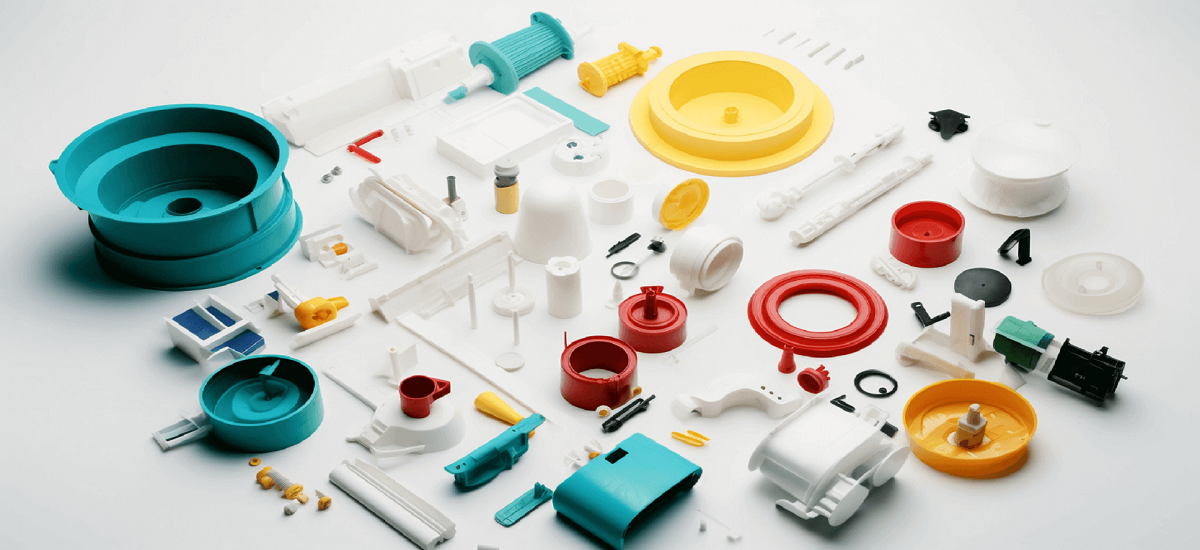Your privacy is important to us.
This website uses cookies so that we can provide you with the best user experience. Learn more about our use of your data by reading our Privacy Policy.

Among today’s manufacturers, both 3D printing and plastic injection molding are viable options for producing complex plastic parts and components. While originally considered competing technologies, these techniques are now each largely recognized as having unique advantages and can even be used together to help optimize production efficiency.
For OEMs wondering whether plastic injection molding or 3D printing is the right process for their next project, we’ll explain when to use each technique and how they can be used collectively to support one another.
3D printing and plastic injection molding are both helpful processes in their own right. 3D printing has given engineers the power to create plastic designs at their desks and bring them to life in a matter of hours. Injection molding, on the other hand, is the go-to for quality and value. It is commonly used to quickly and reliably produce high-volume runs of complex plastic designs.
The use of 3D printing in innovative and experimental scenarios has been grabbing recent headlines, but the reality is that the majority of today’s plastic parts are manufactured using plastic injection molding. The choice is understandable given how the process helps OEMs control quality, costs, and design complexities such as tight tolerances.
Tooling design is one of the most expensive and time-consuming parts of the injection molding process. It is also an opportunity for some injection molders to leverage 3D printing to create tools during prototyping that help reduce development time and lower tooling costs. Stereolithography (SLA) 3D printing, for example, can be a cost-effective alternative to metal tool fabrication, as SLA parts are fully solid and isotropic, and can withstand the pressure of low-volume molding.
Comparing tooling quotes? Our whitepaper can help!
For larger volume production runs and more precise molds, however, traditional tooling remains the best option. Likewise, if a part requires the use of thermoplastics, metal tools are the best option to handle resins with melting temperatures at or exceeding 500°F.
Due to its ability to create custom plastic part designs and prototypes in a matter of hours or days, 3D printing technology has exploded in popularity. The medical industry, for example, has embraced the quick-turn technology to create custom items like prosthetics, dental products, orthopedics, exoskeletons, bones, implants, artificial heart valves, and more, with researchers even working on 3D organ printing technologies.
That's not to diminish plastic injection molding's contributions and ongoing demand within the medical community. The value of consistently producing large quantities of defect-free, complex medical devices and components simply cannot be underestimated.
Viewing 3D printing and plastic injection molding as complementary instead of competing technologies is beneficial for OEMs and molders alike. Combining these two techniques as situations warrant can ultimately help shorten pre-production iteration cycles and allows for better testing, manufacturing, and outcomes. Read our Custom Plastic Injection Molding Guide to gain a better understanding of the versatility and value of plastic injection molding

Toni Plastic Industries is a leading manufacturer and supplier of high-quality plastic products. We specialize in custom injection molded products, Original Equipment Manufacturer (OEM) Parts and Original Design Manufacturer (ODM) Parts. Our product range includes various types of products such as Plastic Hangers, Belt Hangers, Scarf Hangers, Blazer Hangers, Packaging Hangers, Wooden Hangers, Matt Hangers, Bottom Hangers, Top Hangers, Corrugated Box Handle, Plastic Dowel Sleeves, Automotive Parts, Electronic Housing and Custom injection molded parts.
View all posts by TONI PLASTIC INDUSTRIES